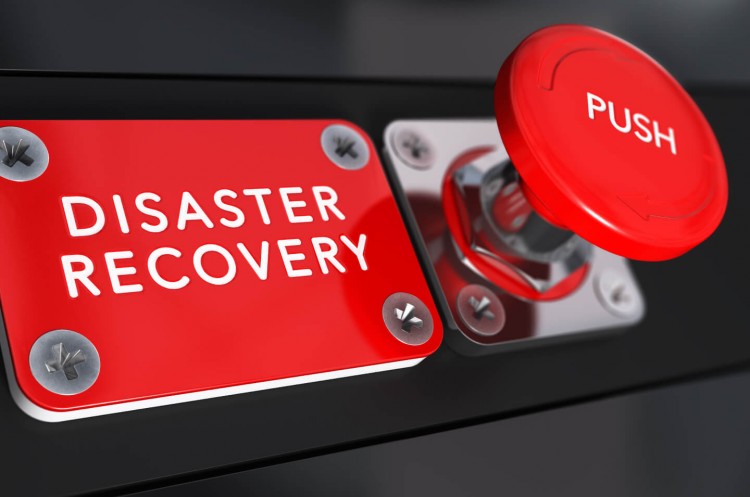
Why is a Disaster Recovery Plan Important?
By Generational Group
10/23/2017
After the unfortunate string of hurricanes that recently hit key parts of the U.S., thousands have been left affected, including hundreds of businesses in Houston, Southern Florida, and Puerto Rico.
Although acts like these are rare, preparing your business for such disasters could help avoid long-term closures or worse. Should such an event occur again in the future, implementing a corporate disaster plan could be crucial for your company’s recovery.
Creating, documenting, and testing a disaster recovery plan is critical in today’s business world, especially if you want to look for buyers/investors for your firm. More and more professional buyers are adding questions about disaster preparedness to their due diligence checklists. If you come up short on this, or have no plan at all, buyers will be concerned.
The great news is that with some simple planning and organizing, you can create a fairly robust disaster recovery program that will give buyers confidence should a catastrophe strike and, most importantly, protect the company from financial upheaval. Here are some basic guidelines (of course the larger the company, the more sophisticated these steps will become).
First, most importantly, set up a system where your key data from all departments is backed up regularly (daily if possible), and then at least once a week, that back-up data is transferred to an offsite location for safe storage. It is a good idea to use a third-party location for this and ensure that it is several miles (or more) away from your office to safeguard that the back-up facility is far enough away to be protected from what may impact your office.
Secondly, it is a good idea to create a corporate “calling tree” in case disaster is imminent. Again, this can be very basic. Key managers should have home phone numbers and cell numbers for all of their direct reports. In case of an emergency, for example, when the office will be closed, the person at the top of the tree contacts the department heads, who then reach out to all their employees with key information about the pending disaster and steps to take (i.e., staying out of the office). This is a great way to communicate quickly with employees.
If you want to really protect yourself and your business, you can actually contract with companies that specialize in creating back-up locations where employees can gather if the office is shut down for an extended period of time. Although this can be expensive, having a separate facility some miles away can be a great way to ensure that your business has continuity.
Since most businesses cannot afford to maintain a backup location, another great idea is to allow associates to work from home (assuming that their homes are safe) during and after a disaster occurs. This is a great idea to pursue because today the technology exists where you can have nearly 100% of your workforce “virtual” for a short period of time in case the office is shutdown or impossible to reach.
Most importantly, no matter how simple or sophisticated your plan is, it is vital to TEST it. Just because it looks great on paper does not mean it will actually work. The only way to be ready for a disaster is to prepare and work the plan in advance. Not only will this allow your associates to understand how the strategy is supposed to work, it will also allow you to determine where your gaps are in the plan. Odds are good that when you test it, you will find that you completely forgot something in your disaster recovery.
Again, these are just some simple ideas that you can implement in advance of any catastrophe occurring in your area. Granted, no plan is perfect and as we have seen, Mother Nature can be quite powerful and damaging. However, when it comes to talking to buyers, having a plan in place to discuss during due diligence can make a huge difference in how they view your company (and how they structure your deal).
Keep in mind that the one common issue that all buyers share is this: a fear of risk and uncertainty. If both are present in a transaction, they will factor it into their pricing model either by reducing what they will pay or requiring you to stay on for a number of years under an earn-out so some of these details can be addressed. It’s far better to create something in advance than be required to as part of the transaction.
If you would like some sources to give you more ideas on creating a disaster plan, use these links:
- Small Business Disaster Recovery Planning Template and Guide
- Business Continuity Plan
- Prepare for Emergencies
And if you are interested in learning more about how buyers view risk & uncertainty and how you can better position your company for due diligence, attend one of our complimentary exit planning conferences. An investment of a few hours of your time could pay off handsomely down the road, as you will learn how to prep your company to be “buyer ready.” To learn more call us at 972-232-1121 or visit our website and provide us with your contact information.
No matter what, be sure to take the time in advance to better prepare your company and your staff for any emergency that might arise. Doing so will ensure that your business can better survive whatever nature throws at you.
Carl Doerksen is the Director of Corporate Development at Generational Group.
© 2021 Generational Group, LLC. All Rights Reserved.



